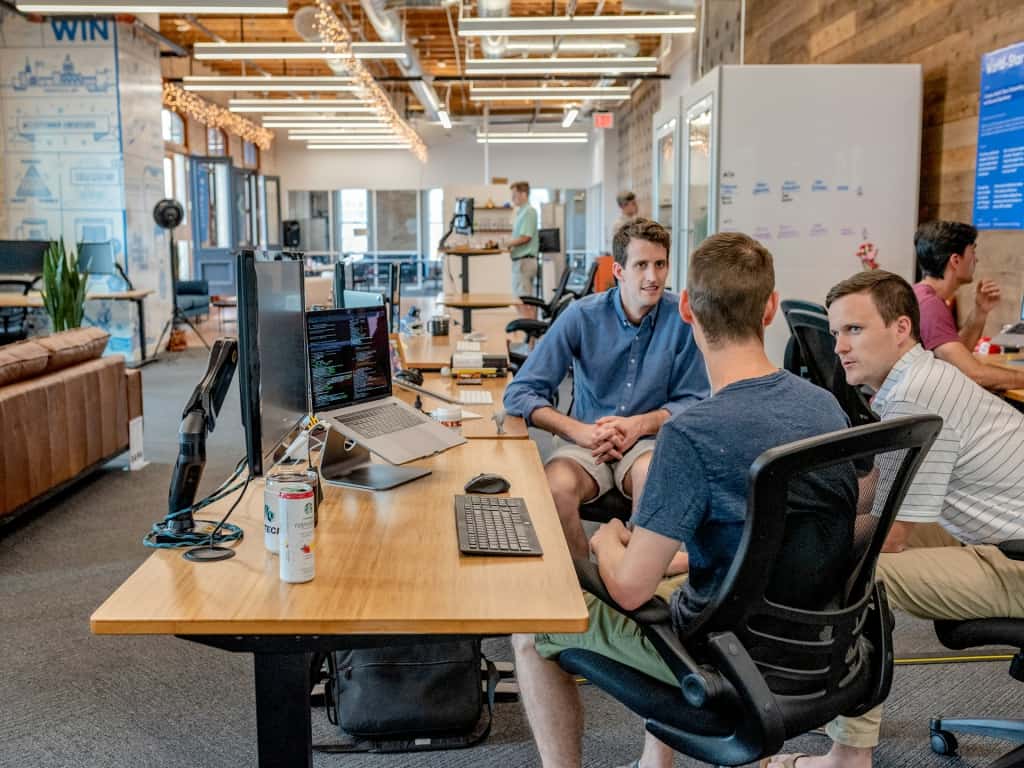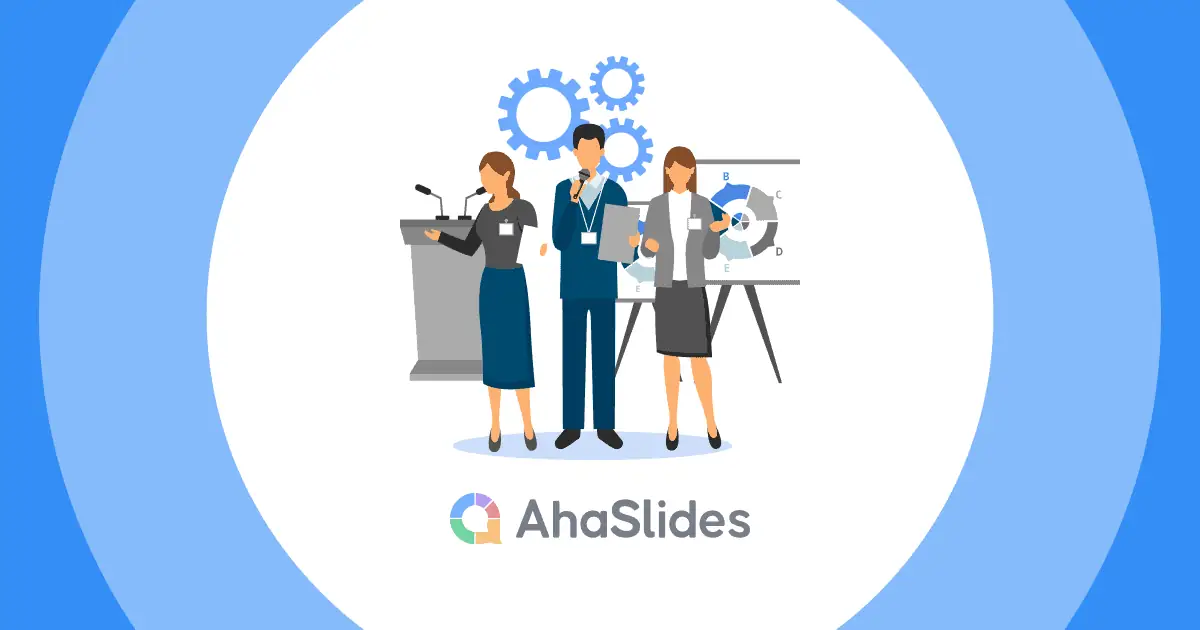有效的職場溝通不僅限於工作相關的議題。它涉及在職業興趣和個人興趣之間找到平衡,這有助於同事之間建立更牢固、更舒適的關係。讓我們來看看20個值得討論的話題,它們可以引發有意義且愉快的對話,幫助避免尷尬的沉默,並營造積極的職場氛圍。
目錄:
工作場所對話的重要性
職場對話 在組織生活的各個方面發揮著至關重要的作用,並對員工個人和整個組織產生重大影響。它們有助於營造積極的工作環境,促進協作,並提高員工滿意度和敬業度。

以下是這些互動如此重要的一些關鍵原因:
- 促進協作和團隊合作:團隊成員之間開放且頻繁的溝通可以分享想法、知識和技能,這對於有效的團隊合作和成功完成專案至關重要。
- 提高員工敬業度:定期對話可以幫助員工感覺更投入並與他們的工作和組織建立聯繫。
- 提高工作滿意度:在工作環境中感到舒適並且可以與同事和主管進行公開對話的員工通常對自己的工作更加滿意。
- 幫助解決衝突:開放和尊重的對話有助於理解不同的觀點,找到共同點,並找到互惠互利的解決方案。
- 改善組織文化工作場所對話的性質可以塑造並反映組織的文化。鼓勵開放和尊重溝通的文化通常更加積極和有效率。
- 促進員工福祉:有關非工作主題(如嗜好、興趣或個人成就)的對話有助於創造更人性化的工作環境。認識到員工是一個擁有工作以外生活的完整個體,這對他們的整體福祉至關重要。
在工作場所談論的事情
讓我們來討論一下您可以在組織環境中討論的一些熱門話題。
對話開始者
發起 談話 有時候,開場白可能很有挑戰性,但只要找到合適的開場白,就能讓同事們參與進來,創造有意義的互動。以下五個開場白,能打破僵局,為有成效的討論奠定基礎:
- 即將開展的項目和舉措:詢問即將開展的專案或計劃,顯示你對公司的發展方向以及同事的參與度感興趣。例如:“我聽說了新的行銷活動。你在其中擔任什麼角色?”
- 最近的成就或里程碑:認可同事近期的成功或團隊所取得的成就,是表達感激和關注的絕佳方式。例如:“恭喜你獲得這位大客戶!團隊做得怎麼樣?”
- I產業新聞與趨勢:討論你所在行業的最新趨勢或新聞可以引發有趣的辯論和知識分享。例如:“你讀過最新的[行業]技術嗎?你認為它會如何影響我們的工作?”
- 工作場所變更或更新:談論工作場所近期或即將發生的變化對大多數員工來說都是一個容易引起共鳴的話題。例如:“你對新的辦公室佈局有什麼看法?”
- 專業發展:關於職業發展(例如培訓計劃或職業目標)的對話,表示你重視個人和集體發展。例如:“你今年計劃參加任何研討會或研討會嗎?”

公司動態
公司活動提供了一種與同事進行更個人聯繫的絕佳方式。知道在這些活動中該說什麼也可以突顯您對公司文化的參與和興趣。以下五個主題可以作為出色的對話片段:
- 即將舉行的社交活動談論即將舉行的社交活動,例如辦公室派對或團隊建立活動,可以讓人興奮不已,也更具包容性。例如:“你這週末要去參加公司年度野餐嗎?我聽說會有很多精彩的活動。”
- 慈善和志工活動許多公司都會參與慈善活動。討論這些活動可以是探索共同價值觀和興趣的一種方式。例如:“我看到我們公司正在組織一場慈善跑。你想參加嗎?”
- 專業研討會和會議s:談論研討會或會議等教育活動,反映了你對學習和發展的投入。例如:“我下週要參加數位行銷研討會。你也感興趣嗎?”
- 最近的公司慶祝活動回顧最近的慶祝活動,例如公司週年紀念日或取得的重要里程碑,可以成為共同的驕傲。例如:“十週年慶典太棒了。你覺得主講嘉賓怎麼樣?”
- 假日聚會和聚會:談論節慶派對和其他節慶聚會可以活躍氣氛,增進人際關係。例如:“聖誕派對策劃委員會正在徵集創意。你有什麼建議嗎?”
公司會議
會議在任何工作場所都很常見。在這裡,員工必須表現得專業,因此,最好的討論主題是那些能夠增進理解和團隊合作的話題。以下是圍繞公司會議的五個對話主題,這些主題既豐富又引人入勝:
- 會議成果和決定:討論最近會議的成果或決策可以確保每個人都達成共識。例如:“在昨天的團隊會議上,我們決定更改專案時間表。你認為這會對我們的工作產生什麼影響?”
- 對會議演示的回饋:提供或尋求關於演示的回饋可以培養一種促進成長和支持的文化。例如:“你關於市場趨勢的演示非常有見地。你是如何收集數據的?”
- 即將召開的會議議程:討論即將召開的會議議程可以幫助同事做好準備,並可能更有效地做出貢獻。例如:“下週的全體會議將討論新的人力資源政策。您有什麼顧慮或認為需要解決的問題嗎?”
- 對會議流程的思考分享會議組織方式的想法可以提高會議效率和參與度。例如:“我認為我們新的每週簽到模式確實簡化了我們的討論。你對此有什麼看法?”
- 行動項目和責任:討論行動項目和分配的職責,可以確保清晰明確、責任到位。例如:“上次專案會議上,你被指派負責客戶演示。進度如何?”

個人生活
將個人生活納入專業對話中至關重要。它為工作關係添加了人的因素。然而,參與這個話題是很棘手的。記得避開複雜或排他性的問題,以免惹惱同事和 同行.
以下是在工作中討論的適當個人生活主題的五個範例:
- 週末計劃或消遣分享你的週末計畫或嗜好可以成為輕鬆愉快的開場白。例如:“我計劃這個週末去遠足。你有什麼喜歡的路線嗎?”
- 書籍、電影或電視節目:討論流行文化是找到共同點的好方法,也能引發熱烈的討論。例如:“我剛讀完一本(暢銷書)。你讀過嗎?你覺得怎麼樣?”
- 家庭或寵物更新分享家庭活動或寵物的趣事,既能讓人感到親切,又能讓人產生共鳴。例如:“我女兒剛上幼兒園。這對我們來說是重要的一步。你有孩子嗎?”
- 烹飪興趣和經驗:談論烹飪或用餐體驗可以成為有趣的話題。例如:“我周末去了這家新開的意大利餐廳。你喜歡意大利菜嗎?”
- 旅行經歷或未來計劃:關於過去旅行或未來旅行計劃的對話可能會很精彩,也很吸引人。例如:“我計劃明年去日本旅行。你去過嗎?有什麼推薦嗎?”
總結起來
有效的溝通是職場蓬勃發展的命脈。掌握溝通的藝術,員工可以創造一個協作愉快的工作環境。無論是透過引人入勝的開場白、關於公司活動和會議的討論,還是精心融入個人生活主題,每一次對話都有助於建立更牢固、更有凝聚力的職場關係。
歸根究底,職場溝通成功的關鍵在於懂得談論適當的話題。關鍵在於在職業和個人話題之間取得適當的平衡,並始終尊重個人界線和文化差異。如此一來,員工才能營造一個更具活力、更具支持性、更具包容性的工作環境,促進個人成長和職涯發展。







